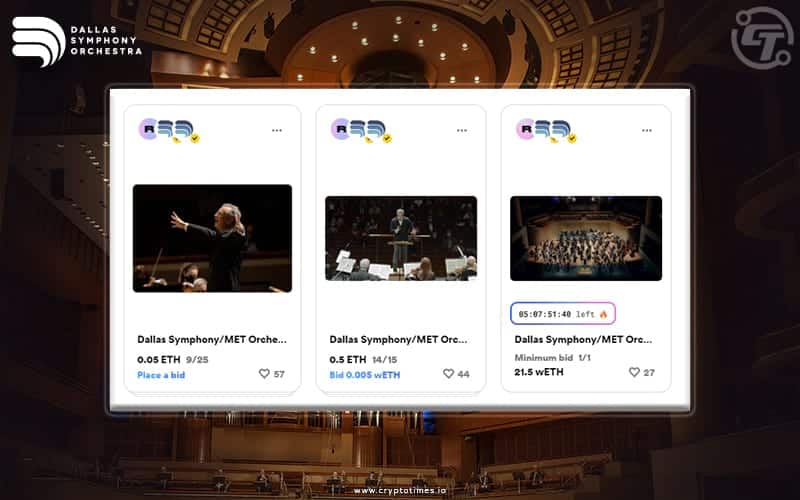The Dallas Symphony Orchestra released Classical NFTs to commemorate a historic musical event that took place at the Morton H. Meyerson Symphony Center in Dallas in May.
The NFT records DSO music director Fabio Luisi and MET Orchestra musicians in an emotional performance of Mahler’s First Symphony in front of a live audience. It marked the first time many non-DSO musicians performed for a live audience since the coronavirus shut down in March 2020.
The sale will happen in three tiers, each of which is available for purchase with Ethereum on Rarible. The first two tiers will be on sale for $100 and $1000 respectively. The third tier will be auctioned off with bids starting at $50,000.
The Three Tires of Nfts
The first tier offered by the Orchestra is audio of the final movement of Mahler’s First Symphony. The symphony debuted in 1889 at the Vigadó Concert Hall in Budapest, Hungary. On top of that, it also includes the audio, pictures of the musicians performing. 25 of these NFTs are available for purchase at $100 each.
The second tier of NFTs contains videos of the symphony’s first movement along with an exclusive interview with Luisi. Buyers will also receive a ticket to a chamber music concert in Manhattan in 2022. The concert will feature members of the same group who recorded the digital work. 15 of these NFTs are available and selling for $1,000.
Also Read: Coca-Cola to Auction NFT Collectibles on The Friendship Day
The final tier will be up for auction only. It would also contain a full video of the concert including behind the scene footage. The winning bidder will also receive a VIP experience at the NFT reunion concert. This would include dinner with the orchestra, travel expenses, and hotel accommodations. The opening bid for the tier 3 NFT is $50,000.
All of the proceeds from the sale will go directly to Met Opera musicians who have been out of work, without pay, due to the company’s pandemic shutdown. A number of musicians in the company were forced out of New York City during their furlough. Some of them were even selling their prized instruments to make ends meet.







